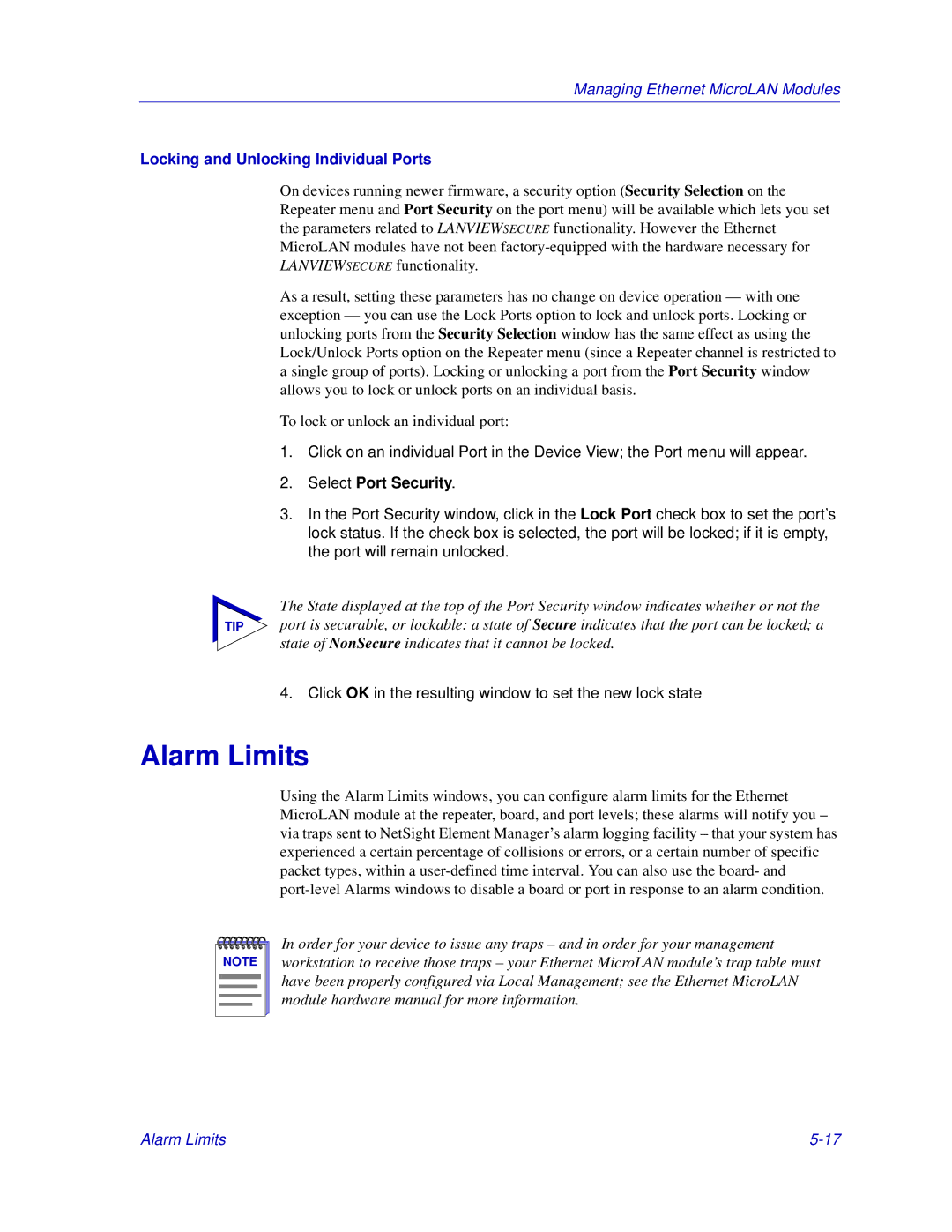
Managing Ethernet MicroLAN Modules
Locking and Unlocking Individual Ports
On devices running newer firmware, a security option (Security Selection on the Repeater menu and Port Security on the port menu) will be available which lets you set the parameters related to LANVIEWSECURE functionality. However the Ethernet MicroLAN modules have not been
As a result, setting these parameters has no change on device operation — with one exception — you can use the Lock Ports option to lock and unlock ports. Locking or unlocking ports from the Security Selection window has the same effect as using the Lock/Unlock Ports option on the Repeater menu (since a Repeater channel is restricted to a single group of ports). Locking or unlocking a port from the Port Security window allows you to lock or unlock ports on an individual basis.
To lock or unlock an individual port:
1.Click on an individual Port in the Device View; the Port menu will appear.
2.Select Port Security.
3.In the Port Security window, click in the Lock Port check box to set the port’s lock status. If the check box is selected, the port will be locked; if it is empty, the port will remain unlocked.
The State displayed at the top of the Port Security window indicates whether or not the
TIP port is securable, or lockable: a state of Secure indicates that the port can be locked; a state of NonSecure indicates that it cannot be locked.
4. Click OK in the resulting window to set the new lock state
Alarm Limits
Using the Alarm Limits windows, you can configure alarm limits for the Ethernet MicroLAN module at the repeater, board, and port levels; these alarms will notify you – via traps sent to NetSight Element Manager’s alarm logging facility – that your system has experienced a certain percentage of collisions or errors, or a certain number of specific packet types, within a
NOTE |
In order for your device to issue any traps – and in order for your management workstation to receive those traps – your Ethernet MicroLAN module’s trap table must have been properly configured via Local Management; see the Ethernet MicroLAN module hardware manual for more information.
Alarm Limits |
